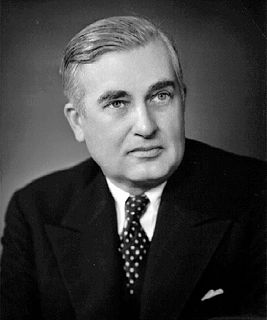A Quote by Aung San Suu Kyi
Despotic governments do not recognize the precious human component of the state, seeing its citizens only as a faceless, mindless -- and helpless -- mass to be manipulated at will. It is as though people were incidental to a nation rather than its very life-blood.
Related Quotes
Government is best which is closest to the people. Yet that belief is betrayed by those State and local officials who engage in denying the right of citizens to vote. Their actions serve
only to assure that their State governments and local governments shall be remote from the people, least representative of the people's will and least responsive to the people's wishes.
Control of thought is more important for governments that are free and popular than for despotic and military states. The logic is straightforward: a despotic state can control its domestic enemies by force, but as the state loses this weapon, other devices are required to prevent the ignorant masses from interfering with public affairs, which are none of their business… the public are to be observers, not participants, consumers of ideology as well as products.
I would have government defend the life and property of all citizens equally; protect all willing exchange; suppress and penalize all fraud, all misrepresentation, all violence, all predatory practices; invoke a common justice under law; and keep the records incidental to these functions. Even this is a bigger assignment than governments, generally, have proven capable of. Let governments do these things and do them well. Leave all else to men in free and creative effort.
This is crossing the Rubicon, after which there will be no more sovereign states in Europe with fully-fledged governments and parliaments which represent legitimate interests of their citizens, but only one State will remain. Basic things will be decided by a remote 'federal government' in Brussels and, for example, Czech citizens will be only a tiny particle whose voice and influence will be almost zero. ... We are against a European superstate.
If terror groups are to be defeated, it is national governments that will have to do so. In nations like India, governments will have to call on the patriotism of citizens to fight the terrorists. In a nation like Pakistan, the government will have to be persuaded to deal with those in their midst who are complicit.
We say, 'Shall we meet for a drink?', as though drinking were the main end of the appointment, and the matter of company only incidental, we are so shy about admitting our need for one another.[...]We say, 'Would you like to come for some coffee?', as though it were less frightening to acknowledge that we are heavily dependent on mildly stimulating drinks, than to acknowledge that we are at all dependent on the companionship of other people.
The dis-incumbenced stance is the one people should cultivate, we are told, once they recognize that there is no world beyond the human world. They will, indeed must, have their beliefs and values, but they will recognize that these 'lean upon' - and are answerable to - nothing other than human commitments and purposes. The only fidelity, Rorty remarked, can be to our own conventions.
The recently ended twentieth century was characterized by a level of human rights violations unparalleled in all of human history. In his book Death by Government, Rudolph Rummel estimates some 170 million government-caused deaths in the twentieth century. The historical evidence appears to indicate that, rather than protecting life, liberty, and the pursuit of happiness of their citizens, governments must be considered the greatest threat to human security.




































